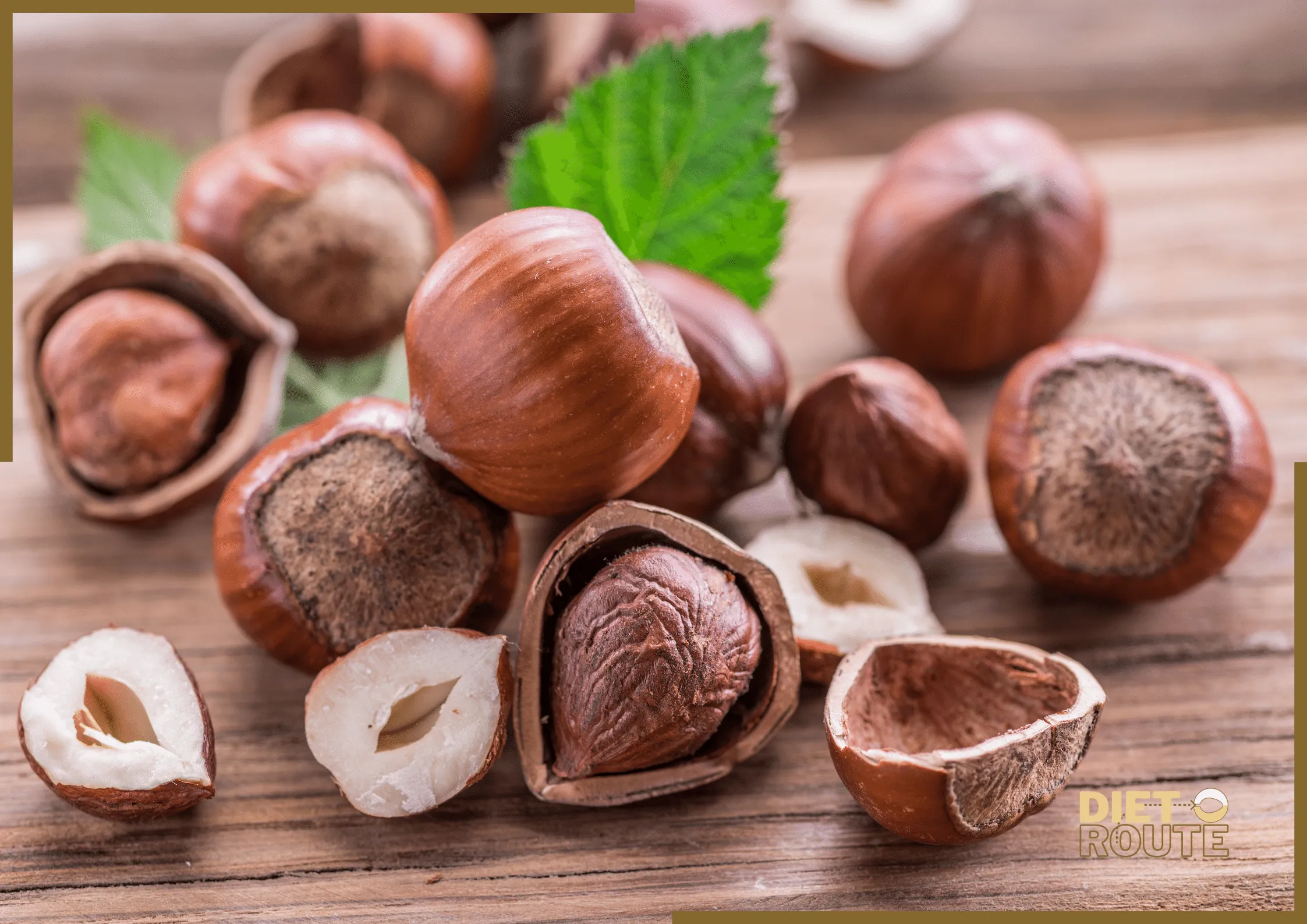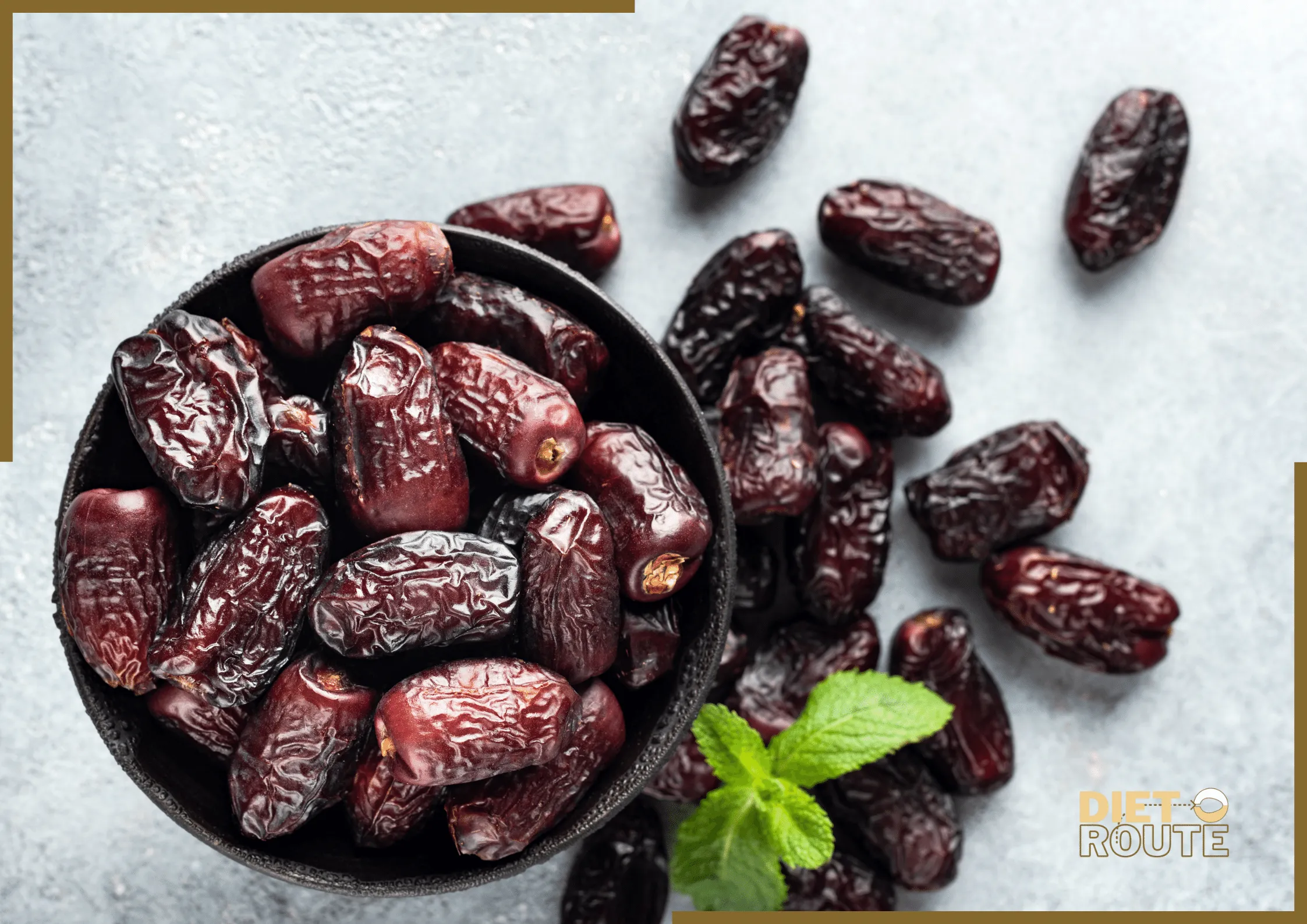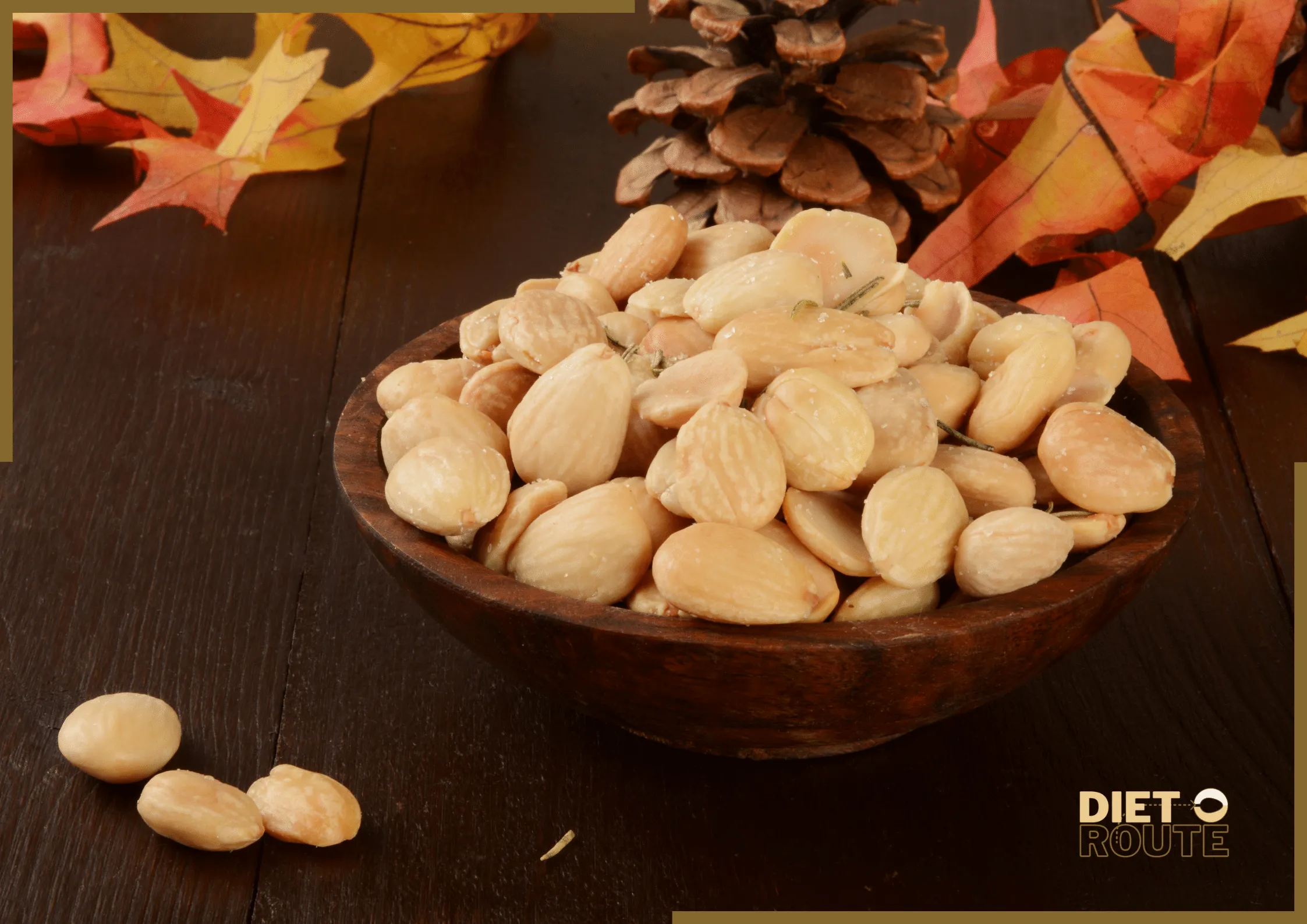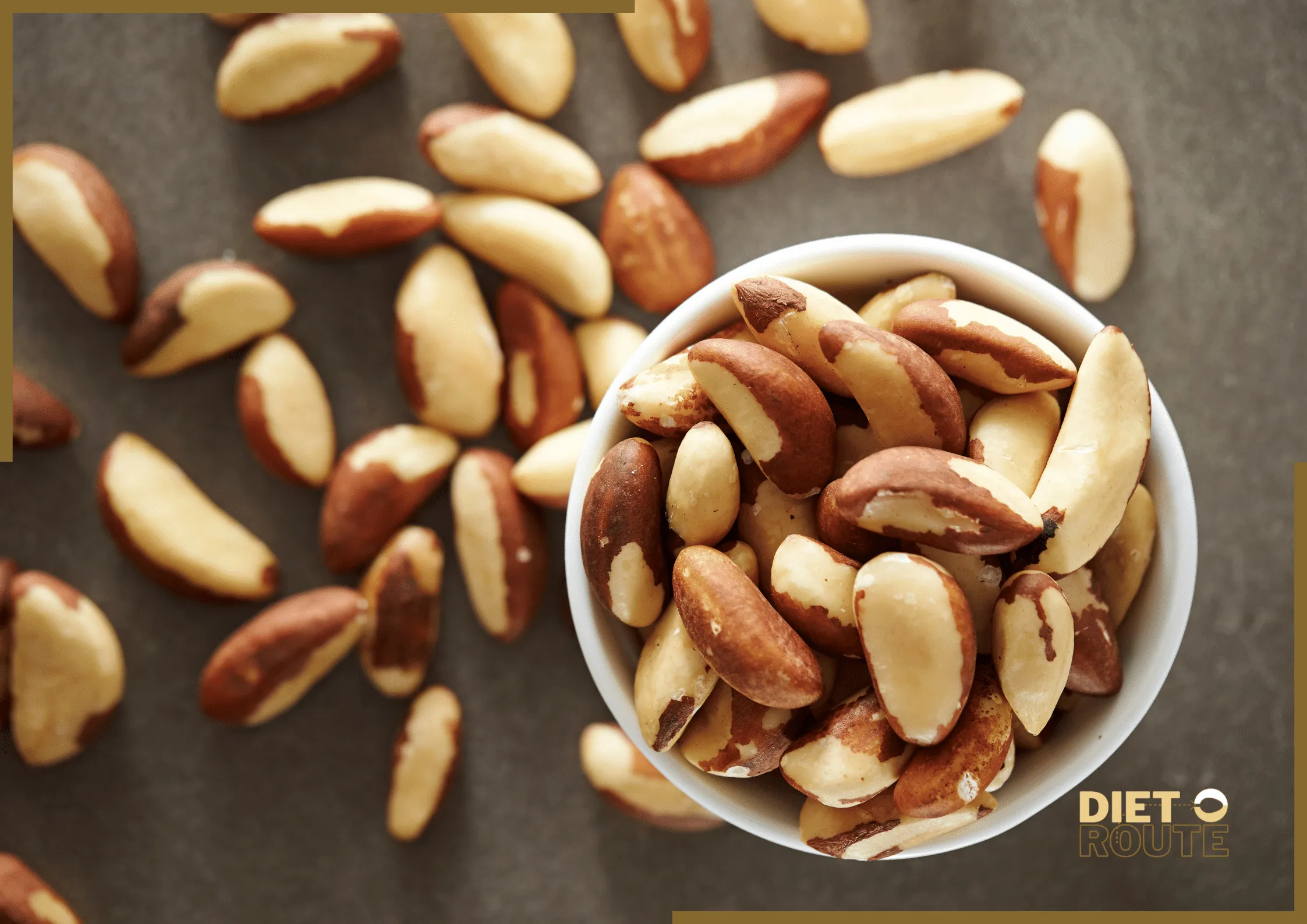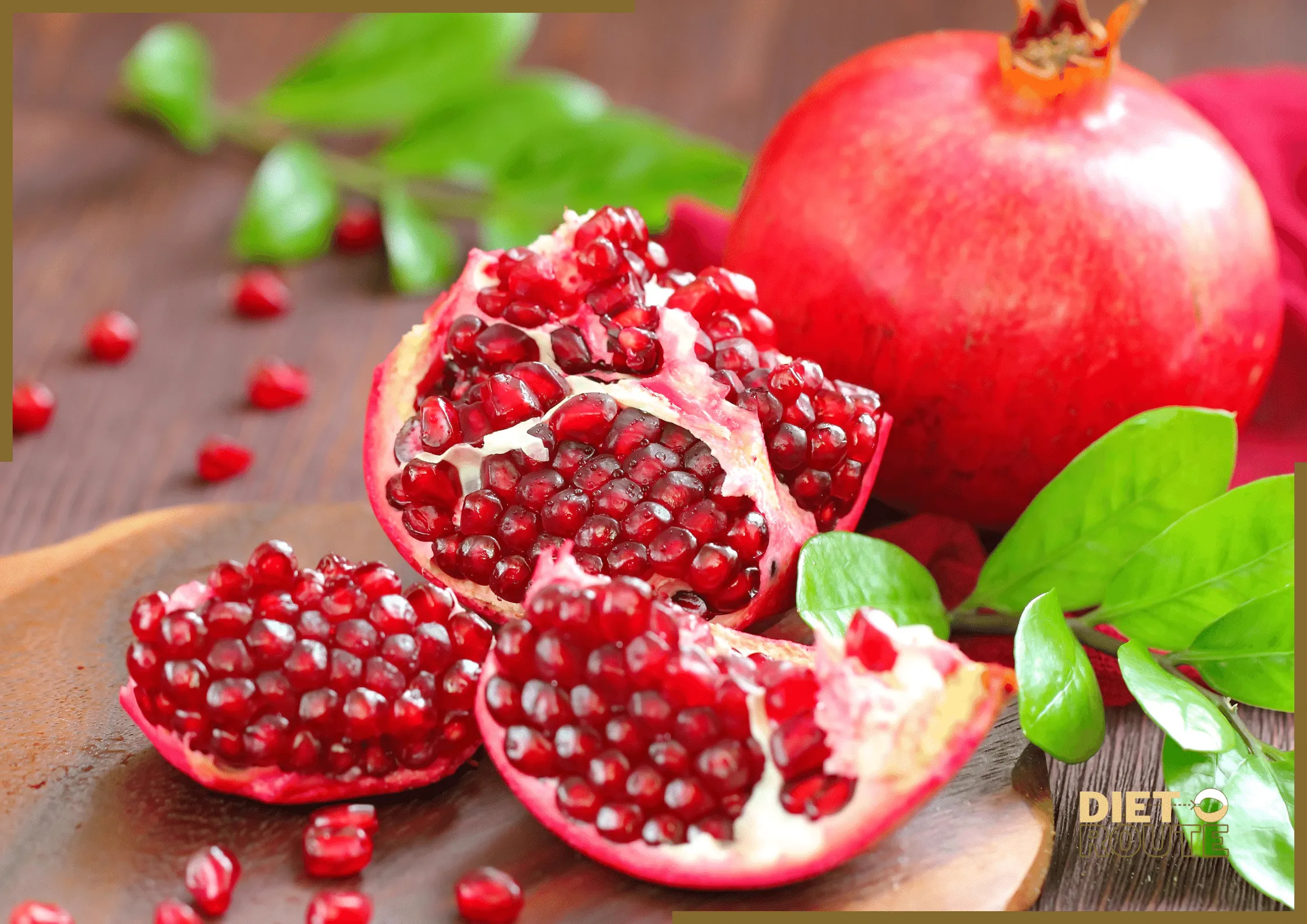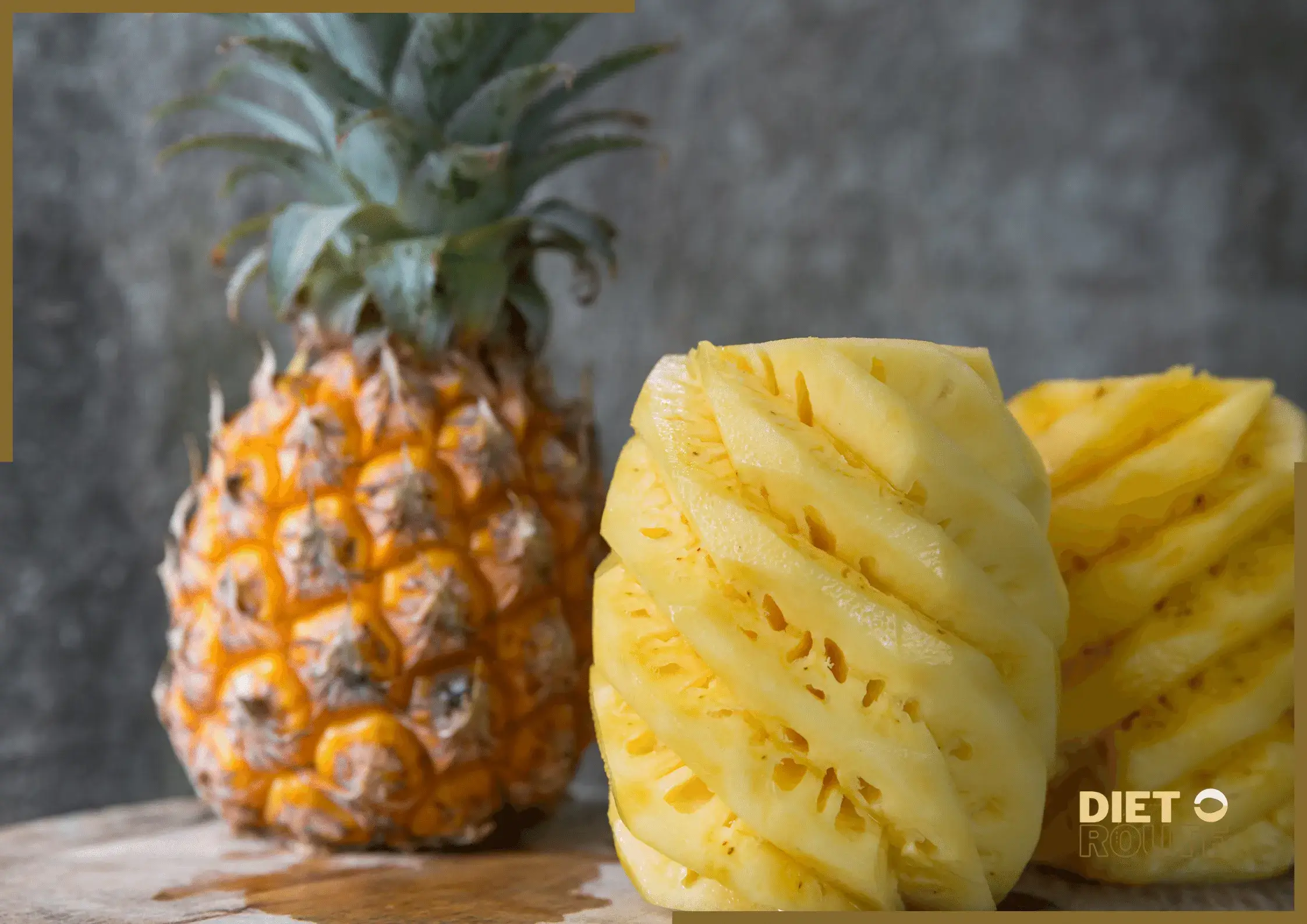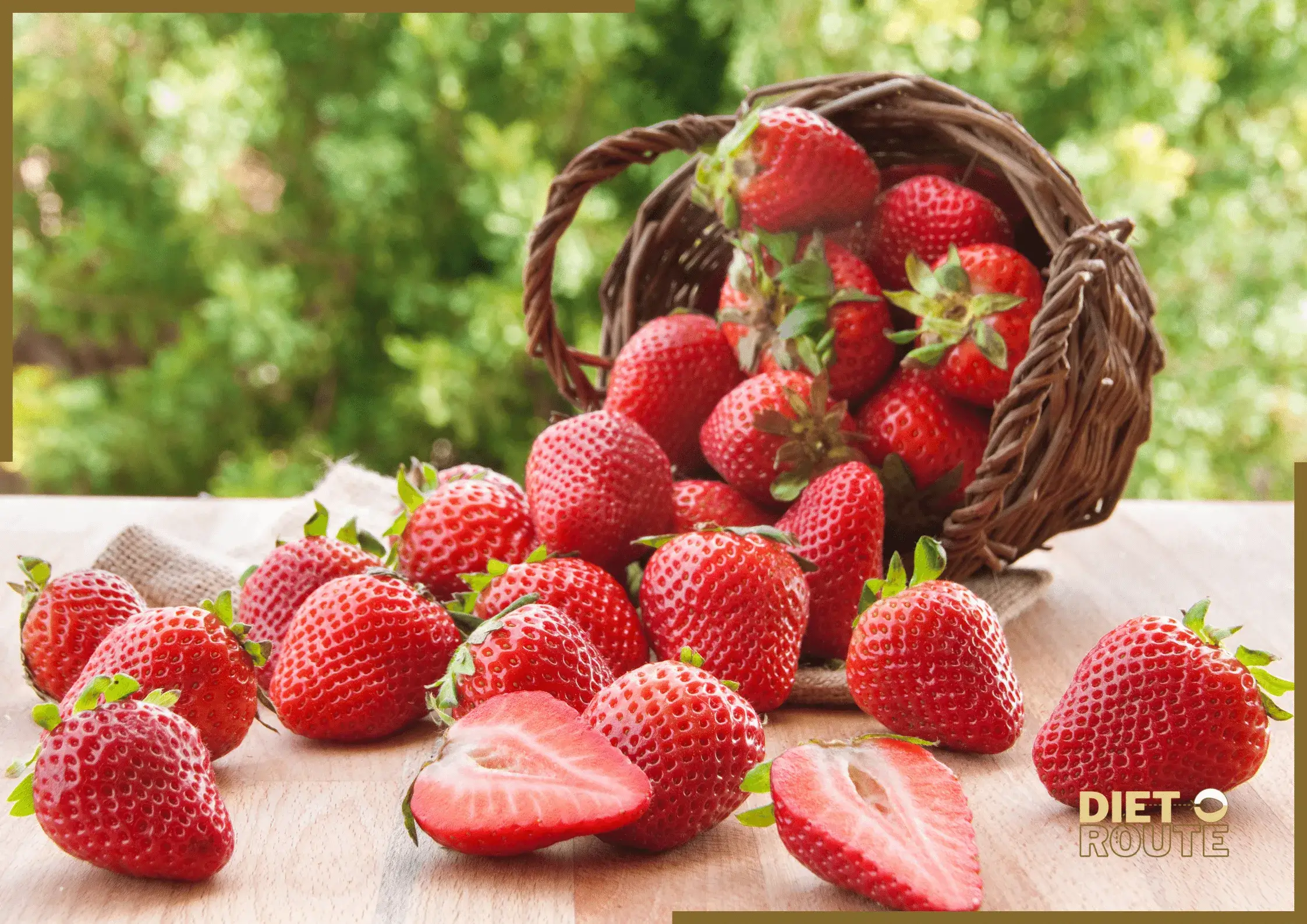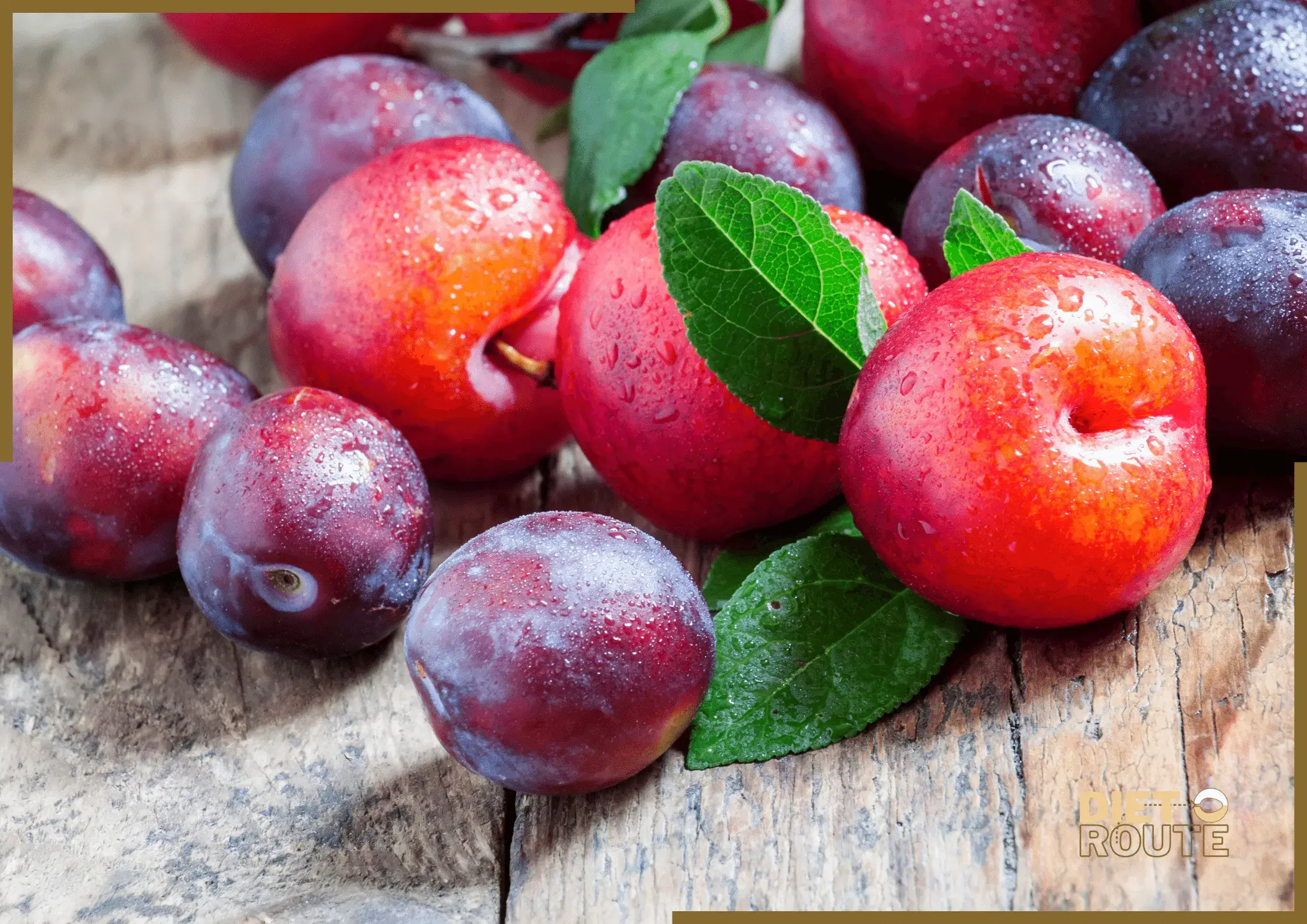Table of Contents
Introduction
Hazelnuts are a highly nutritious and delectable type of nut that provide numerous health advantages. This article presents a tabular breakdown of the nutritional value , including the daily percentage value. We provide an in-depth analysis of the advantages and disadvantages, along with addressing ten commonly asked questions (FAQs). Explore the benefits and factors to keep in mind when adding these nuts to your meal plan.
Nutritional Value Approximately 100g
The values provided are approximate can vary depending on the size and ripeness.
| Nutrient | Amount Per 100g | % Daily Value* |
|---|---|---|
| Calories | 628 kcal | 31% |
| Carbohydrates | 16 g | 5% |
| Fiber | 9 g | 36% |
| Protein | 15 g | 30% |
| Fat | 61 g | 94% |
| Saturated Fat | 4 g | 20% |
| Monounsaturated Fat | 46 g | – |
| Polyunsaturated Fat | 7 g | – |
| Potassium | 680 mg | 20% |
| Magnesium | 163 mg | 41% |
| Vitamin E | 15 mg | 75% |
| Vitamin B6 | 0.4 mg | 20% |
*Percent Daily Values (% DV) are based on a 2,000-calorie diet.

Pros
1. Hazelnuts are a great source of healthy fats, fiber, protein, and essential vitamins and minerals.
2. They are great for heart health as they contain monounsaturated and polyunsaturated fats that can help lower LDL cholesterol levels.
3. They are a great source of antioxidants that help safeguard the body from inflammation and oxidative stress.
4. They are rich in fiber and healthy fats that can aid in regulating blood sugar levels and enhancing insulin sensitivity.
Cons
1. They have a high calorie content, which may lead to weight gain if consumed excessively. Importance of Portion Control for a Healthy Diet.
2. Tree nuts, such as hazelnuts, may pose allergenic potential for certain individuals. Consulting with a healthcare professional is essential if you have allergies and it is important to exercise caution.
Frequently Asked Questions (FAQs)
1. Can individuals with nut allergies consume hazelnuts?
They are classified as tree nuts, and it is recommended that people with nut allergies refrain from consuming them to avoid any potential allergic reactions. For personalized advice, it is recommended to consult with a healthcare professional.
2. Is it possible to include hazelnuts in a diet plan for weight loss?
These nuts can be a part of a weight loss diet in moderate portions because of their nutrient content and satiating properties, despite being high in calories.
3. Are Hazelnuts a Rich Source of Antioxidants?
They are a great source of antioxidants such as vitamin E and phytochemicals that offer numerous health benefits.
4. Can hazelnuts aid in reducing cholesterol levels?
They are a great source of healthy fats, including monounsaturated and polyunsaturated fats, which can contribute to reducing LDL cholesterol levels and promoting heart health.
5. What is the best way to store hazelnuts to keep them fresh?
To keep fresh and avoid rancidity, it is recommended to store them in a cool and dry location, such as a pantry or refrigerator, in an airtight container.
6. Is it safe to eat hazelnuts while pregnant?
During pregnancy, hazelnuts can be a valuable addition to a balanced diet due to their high nutrient content. It is recommended to seek personalized advice from a healthcare professional.
7. Can people with diabetes consume hazelnuts?
They are a great choice for people with diabetes as they are low in carbs and high in fiber and healthy fats. Portion control is a crucial aspect to consider for a healthy lifestyle.
8. Are hazelnuts good for brain health?
They are rich in vitamin E and antioxidants that can potentially provide neuroprotective benefits and promote brain health.
9. What are some ways to include hazelnuts in your diet?
These nuts are a versatile food that can be consumed as a snack, incorporated into salads, utilized as a topping for oatmeal or yogurt, or added to baking recipes.
10. Can hazelnuts be included in a gluten-free diet?
They are a great addition to a gluten-free diet as they are naturally gluten-free.
In a Nut Shell
Hazelnuts are a type of nut that is rich in nutrients and can offer various health advantages. These foods are abundant in essential vitamins and minerals, protein, fiber, and healthy fats. Adding them to your diet can promote heart health, offer antioxidants, regulate blood sugar levels, and enhance overall well-being. Portion control is crucial when consuming high calorie foods. These nuts should be avoided by people who have nut allergies. For personalized guidance on adding to your diet, it is recommended to consult with a healthcare professional.
